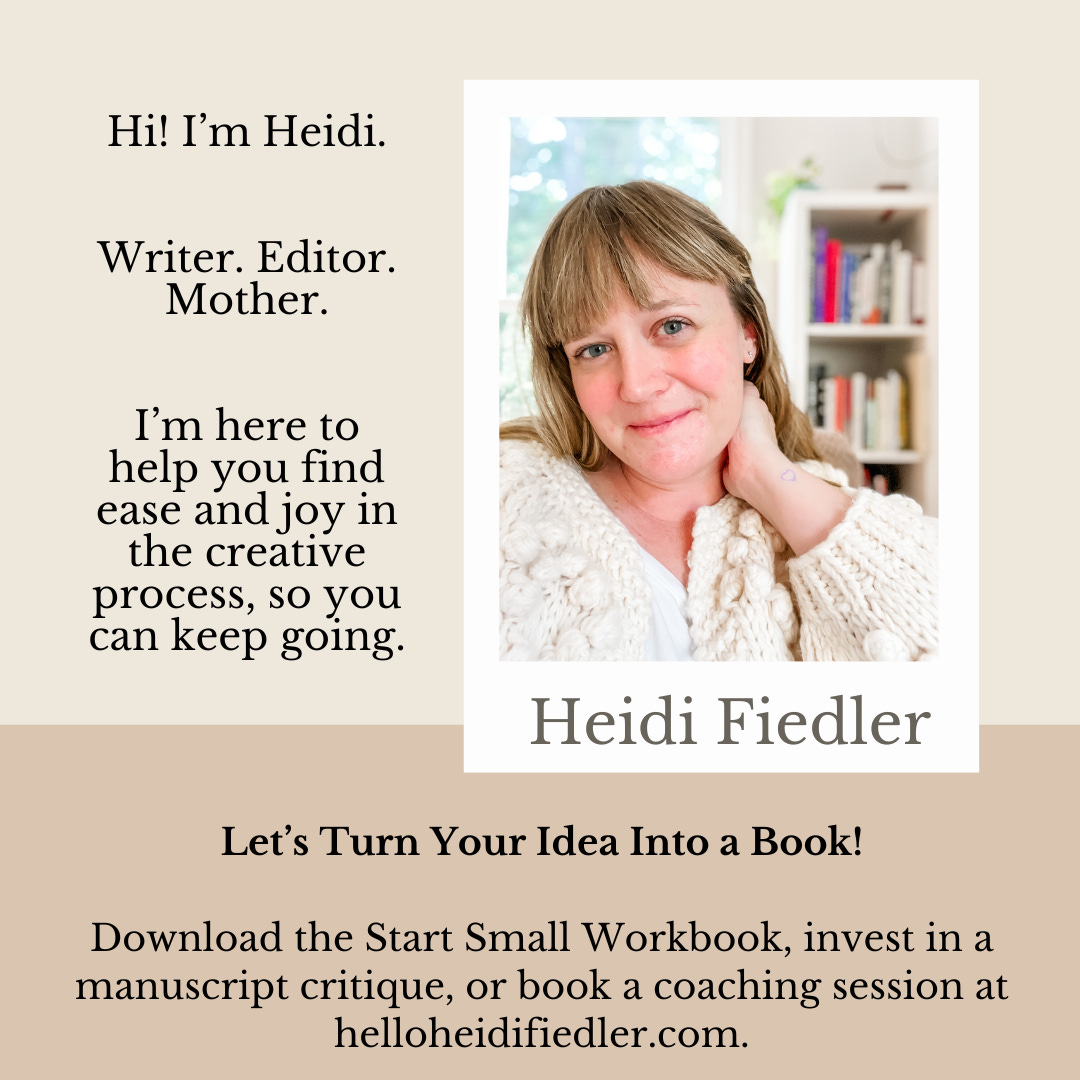We all have projects that we believed in but didn’t work out. When I was working in house as an editor, I was really good at predicting trends and spotting new talent. But sometimes the rest of the team didn’t see the potential, and I would watch a few years later as another publisher put out a similar book on a similar topic. SIGH! When I worked in custom publishing, much of my job was pitching new ideas to other publishers, but there was only so much room in the budget for a new format or a creative gamble, so there were a lot more NOs than YESes. I’ve written dozens of children’s books that went out on submission and didn’t get sold. Some went to acquisitions, and some never made it that far. But they rest in peace in my Dropbox cloud now.
This summer, my book on creativity and motherhood went out on submission for the second time. I did EVERYTHING I could to sell that book before it even existed. Along the way, I got lots of really wonderful feedback, but I also got lots of “I don’t know how to sell this book” comments too. So with heavy hearts, my agent and I decided to stop submitting the manuscript.
What do you do when you’ve poured your heart into a project and it doesn’t sell?
I don’t regret writing this book. I’ve done this long enough to know that the reason this book didn’t sell says more about the market than me as a writer. I don’t need to work harder or get better. I can let that worry go. I’m at peace knowing the book reflects my vision and the quality of my work was high. I heard from enough readers and editors to know I made something special. I know I’ll have more ideas, and I’ll keep writing. I’ll “play in the ruins” as Sasha Chapin describes it.
But with this latest book, I spent so much time pitching essays, going on podcasts, reaching out to other writers, polishing the proposal, and building this Substack community that I feel a bit adrift now. I shaped my professional identity around the editorial feedback and tried to be the right person to publish this book (whatever that means). I can’t just go back to who I was before I wrote this book. That was almost seven years ago. So now I’m in a weird limbo, figuring out who I am and who I’m writing for today. I’m learning what I care about all over again. (Children’s books and creative mothers are still at the top of the list!)
If you do this work long enough, you’ll find yourself at this kind of crossroads every so often. Here’s how I’m caring for myself during this tender time…
Letting myself feel discouraged about publishing (How many times will I hear “We’re looking for something different” and then send something different only to have someone say “I don’t know how to sell this”???)
Remembering I still get to enjoy making art, regardless of whether it sells or not
Journaling and updating my bios to reflect the kind of work I want to focus on right now, knowing this can always change
Working on projects I feel confident about
Revising my picture-book manuscripts so I can send out something new
Experimenting with new genres and formats
Taking my time choosing something new to work on
Leaning into making visual art
Giving myself permission to reimagine my writing life and staying open to change (Still very much a work in progress)
Organizing my files and updating my body-of-work log to digitally close up shop
I also talked with trusted writing friends who had been through similar experiences. As in so many other aspects of American culture, there’s pressure to put on a happy face and look successful in publishing. We talk about milestones, book launches, and bestseller lists, but we hide the hard work, self-doubt, and setbacks. This is a vulnerable post to write, but it’s also so FREEING to be honest about the hard parts of being a writer and talk with someone who gets it.
I describe creative coaching as “gentle therapy for writers,” because often it’s the only place someone can be truly honest about their writing life. My clients tell me things that they don’t feel comfortable talking about with their agent, editor, or even their writing besties. It feels strange at first, and I’m sure they’re often thinking, “This is probably a waste of time.” Some coaching clients come to me with questions about a particular project, but many come bearing a lifetime of manuscripts that have been cherished, worried over, and discarded for a myriad of reasons. I start by reading through everything they share with me and getting a feel for the kind of feedback they’ve been getting, plus why they feel like that feedback misses the mark. Then we talk through craft, process, and business strategy questions. But by the end, they’re feeling lighter, energized, and more committed to their writing than ever before. They know why they’re writing, what makes their work special, and how to build a writing life that honors who they are and where they are in life.
Ready to wander through your own book graveyard?
If you enjoyed this post, please forward it to your favorite creative mothers. And if you’re a writer on Substack, consider recommending Nebula Notebook, so your readers can join this warm community too.
PS—The fastest way to grow as a writer is to book a manuscript critique or a creative coaching session with an expert.
My clients get agents, sell books, and win awards. They also learn how to find ease and joy in the creative process, so they can keep going when life gets hard.





So appreciate this post. I’ve got a parenting humor out on submission and have low expectations it will sell at this point. I feel like parenting books are a tough sell sometimes, sigh.
I’m trying to just focus on other things and I like the advice that you should work on projects you would enjoy doing even if you knew nothing would come of them. But that doesn’t mean it’s not still disappointing when things don’t work out!
What I see when I read this is an author who won’t give up and whose books will one day be acquired 👏🏽👏🏽👏🏽
My book was on submission and I’m talking to my agent this week about if we’re taking it out again after the editors all rejected it, or if we’re going to change focus to my new novel. It’s rough out there! But a great reminder that this says more about the market than our skills.
Keep at it!